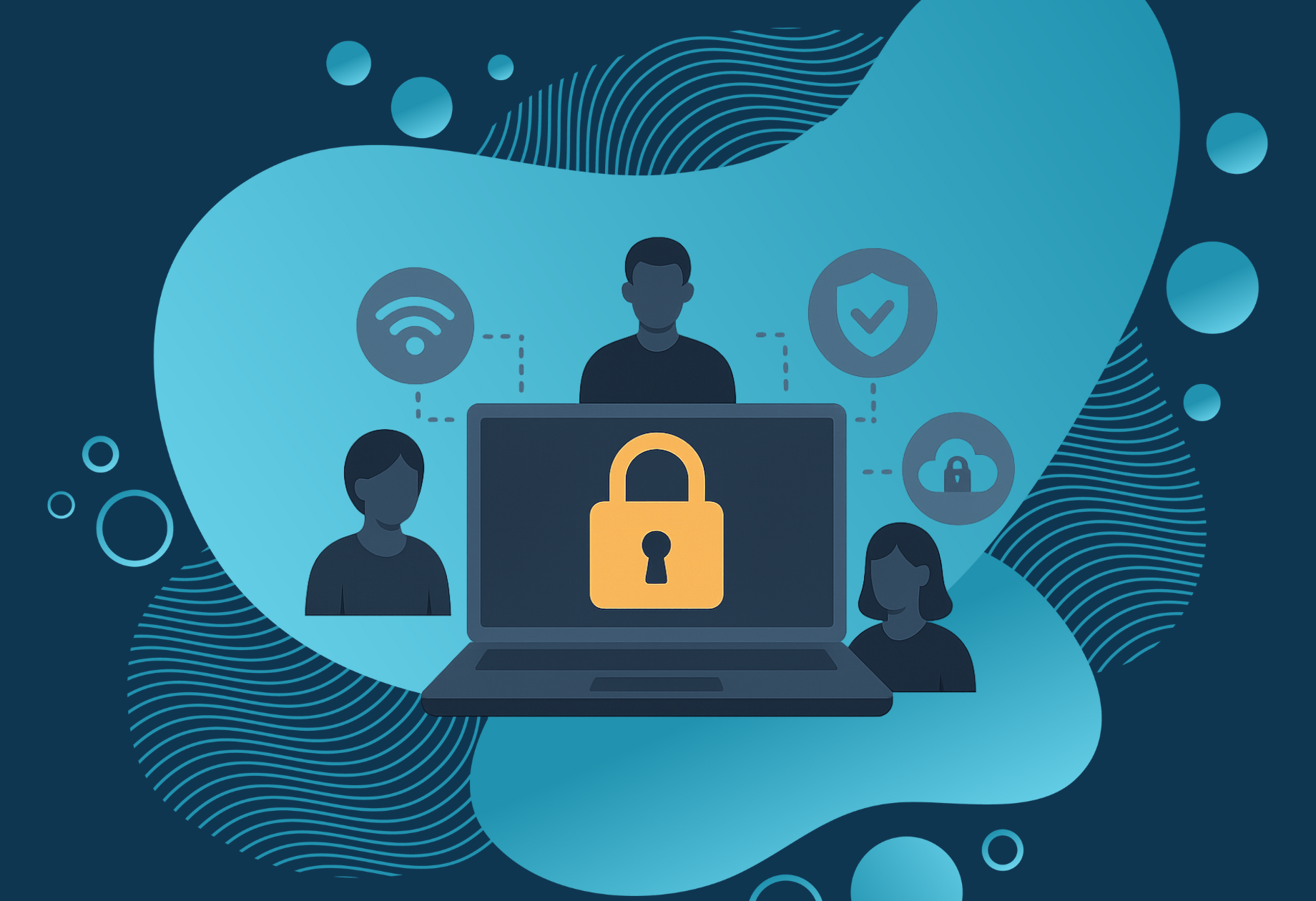The nonprofit sector has undergone a fundamental transformation in how organizations operate, with remote and hybrid work models becoming permanent fixtures rather than temporary adaptations. According to recent research, 62% of Americans are now working from home in some capacity, a shift that includes both temporary and permanent changes across all sectors, including nonprofits. This evolution has created unprecedented opportunities for mission-driven organizations to expand their reach and operate more efficiently. Still, it has also introduced significant cybersecurity challenges that require immediate attention and strategic planning.
For nonprofit organizations handling sensitive donor data, financial records, and personally identifiable information, the stakes couldn’t be higher. The average cost for a nonprofit to recover from a data breach has reached approximately $2.75 million, including legal fees, IT recovery, potential fines, and increased insurance premiums. More concerning, nonprofits experienced a 30% year-over-year increase in weekly cyberattacks in 2024, with 68% of breaches involving a human element such as phishing or human error. These statistics underscore the critical importance of implementing comprehensive security strategies specifically designed for distributed workforce environments.
As a complete virtual accounting partner serving nonprofit organizations, Temple Management Consulting has developed extensive expertise in maintaining the highest security standards while operating entirely in the cloud. Our experience demonstrates that with proper implementation of security protocols, virtual operations can provide enhanced protection compared to traditional office-based models, while offering greater flexibility and cost-effectiveness for resource-conscious nonprofits.
Understanding the Remote Work Security Landscape for Nonprofits
The Elevated Risk Environment
The transition to remote work has fundamentally altered the cybersecurity landscape for nonprofit organizations, creating new vulnerabilities that require specialized attention and strategic mitigation approaches. Remote employees accessing sensitive information across various networks face dramatically increased risks of data interception and unauthorized access. The distributed nature of remote work removes many of the traditional security safeguards that offices provide, including direct supervision, controlled network environments, and physical security measures.
Nonprofits are particularly vulnerable due to their handling of extensive personally identifiable information, including medical records, social security numbers, financial data, and detailed donor profiles. Unlike many for-profit organizations, nonprofits often operate with limited IT resources and cybersecurity expertise, making them attractive targets for cybercriminals who view them as having valuable data but weaker defenses. The consequences of security breaches extend beyond financial losses to include devastating impacts on donor confidence and the organization’s ability to fulfill its mission.
Nonprofit-Specific Vulnerabilities
The unique operational characteristics of nonprofit organizations create specific security challenges that require tailored solutions and heightened awareness. Nonprofits must comply with various regulatory requirements, including GDPR for organizations serving EU citizens, which adds layers of complexity to data protection efforts. The reputational damage from a breach can be particularly severe for nonprofits, as 36% of nonprofit leaders consider reputational risk the biggest concern related to cybersecurity breaches.
Financial systems represent primary targets for cybercriminals, as these systems contain not only organizational financial data but also detailed donor information and payment processing capabilities. Remote access to accounting software, donor databases, and financial reporting systems creates multiple entry points for potential attackers, making comprehensive security protocols essential for protecting these critical assets.
The Accounting Function’s Central Role
The accounting function serves as the backbone of nonprofit operations, managing everything from daily financial transactions to complex grant reporting and donor stewardship activities. When accounting staff work remotely, they require secure access to general ledger systems, accounts payable platforms, payroll systems, and donor management databases. This creates a complex web of security requirements that must be carefully managed to maintain both operational efficiency and data protection.
The challenge becomes even more complex when considering the need to maintain proper internal controls and segregation of duties in a distributed environment. Traditional oversight mechanisms that rely on physical presence and paper-based approval processes must be reimagined for digital environments while maintaining the same level of financial accountability and fraud prevention.
Temple Management’s Virtual-First Approach to Security
Lessons from a Fully Virtual CPA Firm
Temple Management Consulting has operated as a complete virtual accounting partner since its inception, providing us with unique insights into the practical implementation of security measures for distributed financial operations. Our experience serving nonprofit organizations remotely has demonstrated that virtual operations, when properly secured, can provide enhanced security and operational efficiency compared to traditional office-based models.
Operating entirely in the cloud has necessitated the development of comprehensive security protocols that safeguard client data while facilitating seamless collaboration and service delivery. We have implemented secure document management through encrypted cloud storage systems, established client portals to reduce email correspondence risks, and maintained consistent use of secure connections for all client interactions. These practices have proven essential for building and maintaining client trust in a virtual environment.
Building Trust in a Virtual Environment
Operating as a virtual CPA firm requires demonstrating value and security to clients who cannot physically observe our performance. We have developed enhanced communication protocols that maintain oversight and accountability while providing transparency into our processes and security measures. Technology solutions enable effective remote collaboration while maintaining the highest security standards, proving that virtual operations can meet and exceed traditional security expectations.
Our success in building client trust stems from consistent implementation of security protocols, regular communication about security measures, and transparent reporting on our protection methods. These principles apply equally to nonprofit organizations seeking to maintain donor and stakeholder confidence while operating with distributed workforces.



